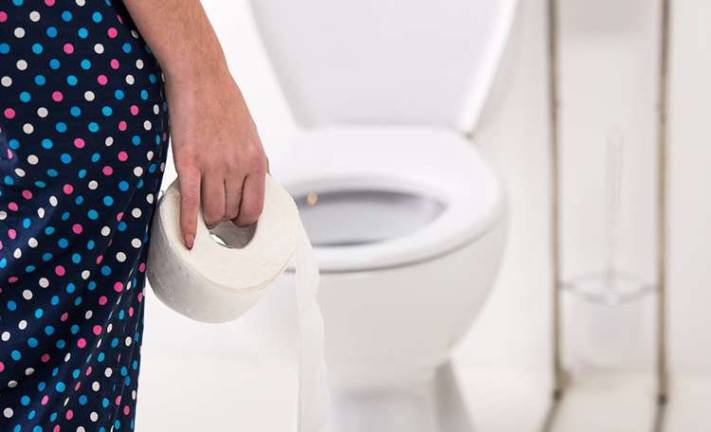Full bladder wakes 2 in 3 women at night

Getting up at night to use the bathroom is often thought of as a problem mainly for older men. Not so — two in three women over age 40 wake up at least once each night because of a full bladder. And nearly half of them make two or more nighttime trips to the bathroom.
That’s the upshot from a survey of more than 2,000 northern California women ages 40 years and older. They were asked questions related to possible reasons for nocturia, the medical term for getting up to urinate twice or more per night.
Factors that increased the likelihood that a woman woke at night to urinate included older age, having had a hysterectomy, having hot flashes, and using vaginal estrogen. The results are were published in the January issue of the journal Obstetrics and Gynecology.
Until now, many clinicians thought women who woke at night to urinate had some disorder causing the problem. That’s the case for men, many of whom get up to urinate at night because of an enlarged prostate gland. So it comes as a surprise that many of the women had no other urinary problems, such as an overactive bladder or leaking urine when coughing (stress incontinence).
Also surprising was that only 25 percent of the women in the survey who had nocturia said “yes” to the question, “Are you at least moderately bothered by having to get up at night to urinate?”
Getting up once or more each night to urinate may not be bothersome, but it can still cause problems. It can interfere with sleep. It can also lead to falls and injury.
Possible causes of nocturia
If the results of this study reflect the general population, many women with nocturia don’t have any underlying urinary tract problems. But it’s still important to consider if there is an underlying reason for the nocturia, especially if it started recently. The medical reasons for nocturia include:A high blood sugar level cause sugar to spill into urine, dragging lots of water with it.
High blood calcium level. Calcium from the blood can get into urine, pulling water along with it
Kidney disease. Some kidney conditions cause the kidneys to make excessive amounts of urine.
Too little antidiuretic hormone. Without this hormone, the body can’t hold on to water. This condition is called diabetes insipidus.
Urinary tract infection. Bacteria in the urine can inflame the bladder, causing frequent urination.
Diuretics (“water pills”) and some other medications cause the body to make extra urine.
Sleep apnea and restless legs syndrome. Both of these sleep-related disorders awaken people from sleep. Such awakenings may prompt them to make a trip to the bathroom.
Water retention in the legs (edema). Fluid that accumulates in the legs during the daytime may move to the kidneys, and then out into urine, at night.
Other than water retention in the legs, the other medical problems almost always cause frequent urination during the day as well as at night.
There may be simpler explanations: You could be drinking too much water and other fluids. Drinking alcohol and caffeinated beverages, especially in the evening, increase urine output by the kidneys.
Simple steps for avoiding nocturia
If you are a woman with nocturia, don’t hesitate to talk about it with your doctor, especially if this is something new. You probably don’t have some medical condition causing it, but it’s wise to check it out.If there is a medical condition, treating it could help you sleep better. If not, lifestyle changes can help women — or men — with nocturia:
During the day, drink enough to quench your thirst and maintain good hydration. But ease off the fluids beginning four to five hours before bedtime.
Take a look at your caffeine intake. In some people, caffeinated beverages can affect urine production hours after they were consumed.
If you drink alcohol, keep it moderate (no more than one drink a day for women, no more than two a day for men). And think twice or three times about having a “nightcap.”
Source: Harvard Health: health.harvard.edu